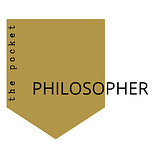Thought
Deep listening is the kind of listening that can help relieve the suffering of another person. You can call it compassionate listening. You listen with only one purpose: to help him or her to empty their heart…You just listen with compassion and help them to suffer less. One hour like that can bring transformation and healing.
—Thich Nhat Hanh
Application
This morning we move from psychological and philosophical perspectives of empathy, and now consider how we can practice it in our everyday lives.
In asking this question intently for myself, I continued to come to Thich Nhat Hanh, a Zen Buddhist master we discussed a few weeks ago in our discussion on dualism. He believes greatly in the capacity for deep listening to lead to transformation, even to end wars.
So what is it?
Deep listening is a very difficult skill to hone. And before I get too much further in to it, I want to share a quick caveat that applies to deep listening but also our entire conversation about empathy.
Empathy is an incredible skill and phenomenon, but I don’t believe we are lacking in our attempt to be empathetic. Rather, I believe we have many other emotional priorities to tend to prior to exercises like deep listening.
What I mean, if empathy feels too much right now, that is ok. It’s completely valid to only have space for your own work and internal healing at the moment.
As we seek collective empathy, that can only happen when each of us is also grounded, centered, and whole. So please don’t read any of this as an instruction, rather interesting research that may be helpful now or in the future.
But this is another truth to the practice of deep listening. It’s very hard to truly listen in a healing way for someone else when a war is raging inside of your own world. Perhaps we need someone to listen deeply to us.
But that is the beauty of this ecosystem. We are most looking to be heard, mirrored, and understood. And you can tell when someone is listening deeply, or just faking it so to speak. But when someone is capable of surrendering, truly ceasing their own internal monologue, and can give you space to communicate your thoughts and feelings without judgement, transformation happens.
Thich Nhat Hanh speaks of a retreat his community held for two factions of warring parties in another country. By the end of two weeks, these people who had been engaged in physical violence toward one another were capable of speaking to the other in profoundly healing ways. Because they had settled much of their inner turmoil, and were capable of listening to and understanding their enemy.
And that, Thich Nhat Hanh suggests, is the power of deep listening. He believes that conflict from interpersonal issues to national wars are rooted in fear, ignorance, and misunderstanding. Each of which are traits that can be addressed in deep listening practices.
In no small way, empathy is the path to peace.
Backstory
Thich Nhat Hanh is a Vietnamese Zen Master who has left an incredible legacy of wisdom and peace behind him. He was contemporaries with Dr. Martin Luther King, who actually nominated Hanh for a Nobel Peace Prize in the 60s.
Hanh spent many of his formative years observing first the French, and then the American attempt to control and conquer his homeland of Vietnam. His observations and experiences forged in him a deep intuition based on his Buddhist teachings regarding war, conflict, and human nature.
He left for France where he founded a retreat center that continues to this day. Hanh suffered a stroke a few years ago, and gave a final oration asking to live the remainder of his life in silent retreat out of the public light.
His practice and teaching of deep listening was likewise forged in an understanding and study of how conflicts and wars originate. His insights are sophisticated and elegant, noting how the inability to listen deeply to anyone else because of our own internal suffering is at the base of so much of our destructive behavior.
And so deep listening is almost like a litmus test for our own spiritual growth. I think what’s most important to remember (and what Hanh would emphasize) is that this journey must be one free of judgement.
For example, we can’t judge ourselves if we don’t feel ready to listen deeply, or if we need to be listened to. These states are not better or worse, they just are. And we shouldn’t be upset for recognizing actions in our lives that were ignorant or fearful at the time, it wasn’t bad, it’s just where you were in that moment.
Rather, deep listening is about self compassion—I’m okay to be where I am—and outward compassion—they’re ok to be where they are. Because without judging someone’s state (or your own state) we are simply aware of how things are. And this allowing reality to be as it is, allows us to move smoothly into the next present moment.
And this is at the heart of the transformation that is captured in the quote above. Deep listening, non-judgmentally, without distraction—this is a great gift we can each offer the world.
I hope this was helpful friends, and I’m looking forward to being with you tomorrow.
Matt
**PS, keep an eye out for a thread later today, it will come as an email invite, for a chance to share about your own experiences with empathy!
References:
http://cultureofempathy.com/references/Experts/Thich-Nhat-Hanh.htm
https://www.lionsroar.com/listening-deeply-for-peace/












